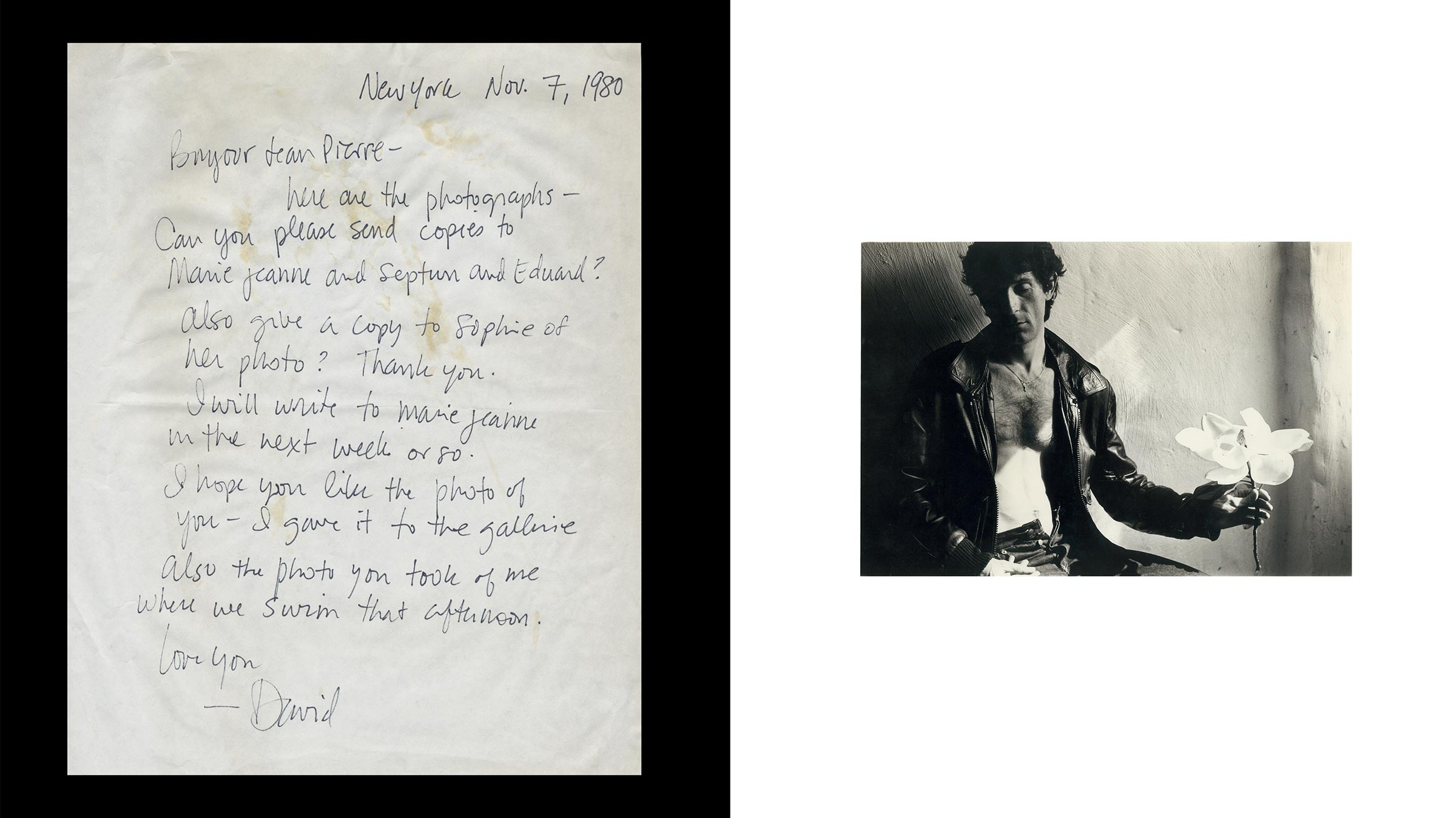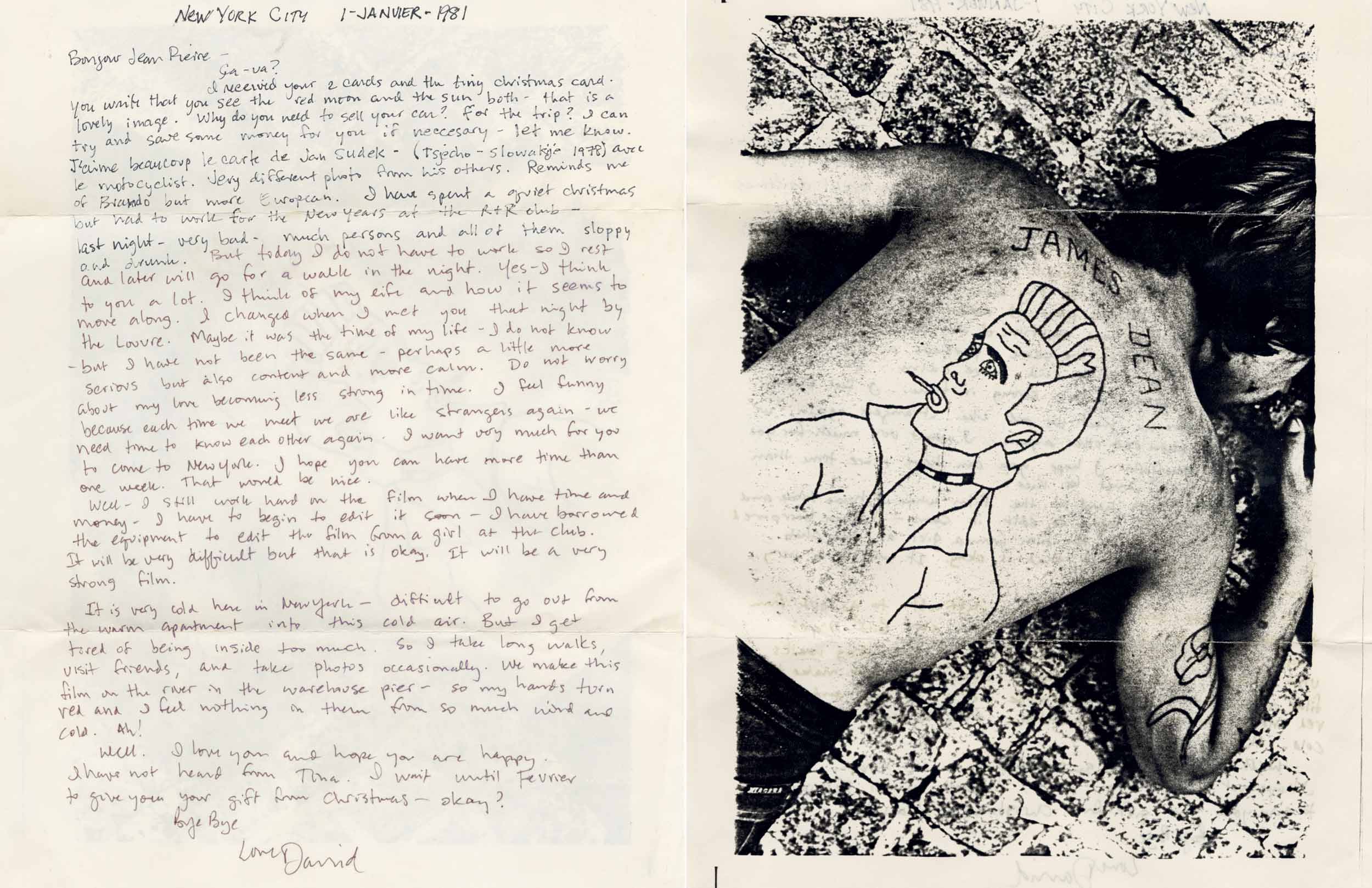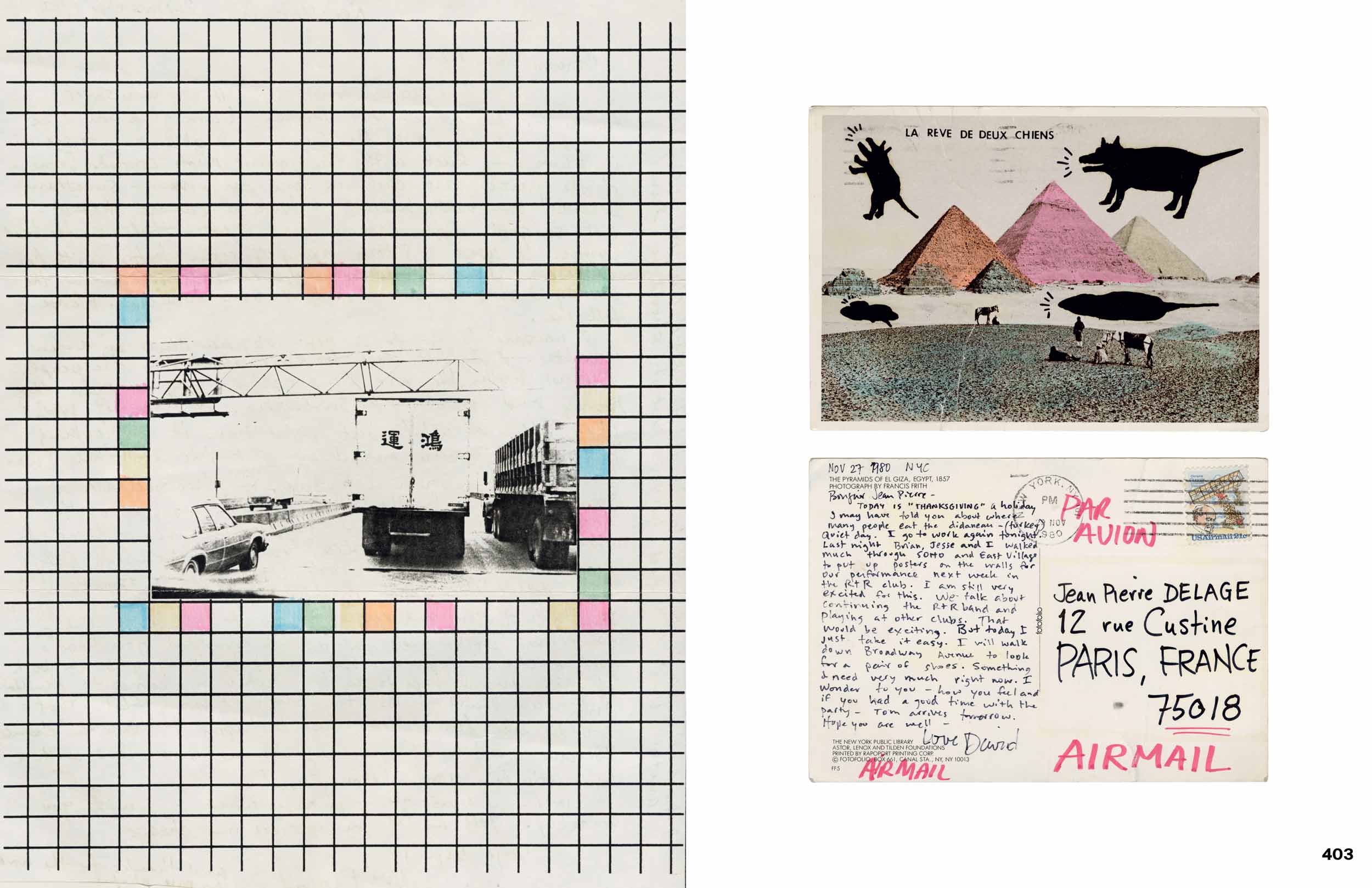In its collection of approximately 300 letters, postcards, sketches, Xeroxes, and photographs, the book charts a young man finding himself through art, love, and loss
In the name of desire, David Wojnarowicz sends a flare from the heart of the East Village—an unyielding hope to establish himself as an artist, and find life above the violence induced by the bourgeois. Situated within the apex of the AIDS epidemic and shattered post-Reaganism, Wojnarowicz scales rage into poetry, rather than submitting to the helms of political collapse. Three decades following his death, his work remains a moving portrait of stolen liberty.
Taking after the exhibition staged at P·P·O·W last year, Dear Jean Pierre: The David Wojnarowicz Correspondence with Jean Pierre Delage, 1979-1982, brings the transatlantic correspondence between Wojnarowicz and his first love, Jean Pierre Delage, into focus. In its collection of approximately 300 letters, postcards, sketches, Xeroxes, and photographs, the book, published by Primary Information, charts the development of Wojnarowicz’s larger works that would go on to define him as one of the preeminent artists of his generation, capturing a foundational period of his artistic and literary practices.
Wojnarowicz and Delage’s relationship transpired in 1978 among the foliage of Paris’ Tuileries Gardens—a nocturnal haven for queer men. Emanating from stolen moments in the shrubbery, Delage’s recollections paint a vivid picture of their initial connection: chemical, emotional, and kinetic. Soon after meeting, Wojnarowicz moved into Delage’s apartment, and the two fused, their partnership taking shape along journeys from the French countryside to New York during the defining years of the avant-garde arena.
In one series of postcards to Delage, Wojnarowicz adorns each note with a single, illuminative letter as if to say J-A-I-M-E-T-O-I—I love you. “I was a witness of David’s beginning…we didn’t talk much about politics and health, [but] I hope people are curious and get to know his character,” Delage shares in the book. “I realized I had to do something—I had all of his work at home. It had to be seen.” Within these artifacts, Wojnarowicz chronicles his daily existence with an unfettered sincerity that accompanies the project’s larger portrait of a young man finding love along with his voice in this environment. They offer an intimate glimpse into Wojnarowicz’s world with the tender wash of his first love.
Delage notes, “There was something in me, in my heart, in my body, something too powerful. I could’ve never destroyed those letters. I could never have thrown away even the smallest note. I kept everything from David… I was so in love with him I can’t explain it. That’s just how it is.” The minutiae of Wojnarowicz nourishes his fantasies for life beyond a politically hampered dystopia, lifting visibility on expressions of radical queer euphoria today. Questing through peaks and troughs, dreams and realities, the power of Dear Jean Pierre resides in the warmth that it omits and the love that it beckons.











